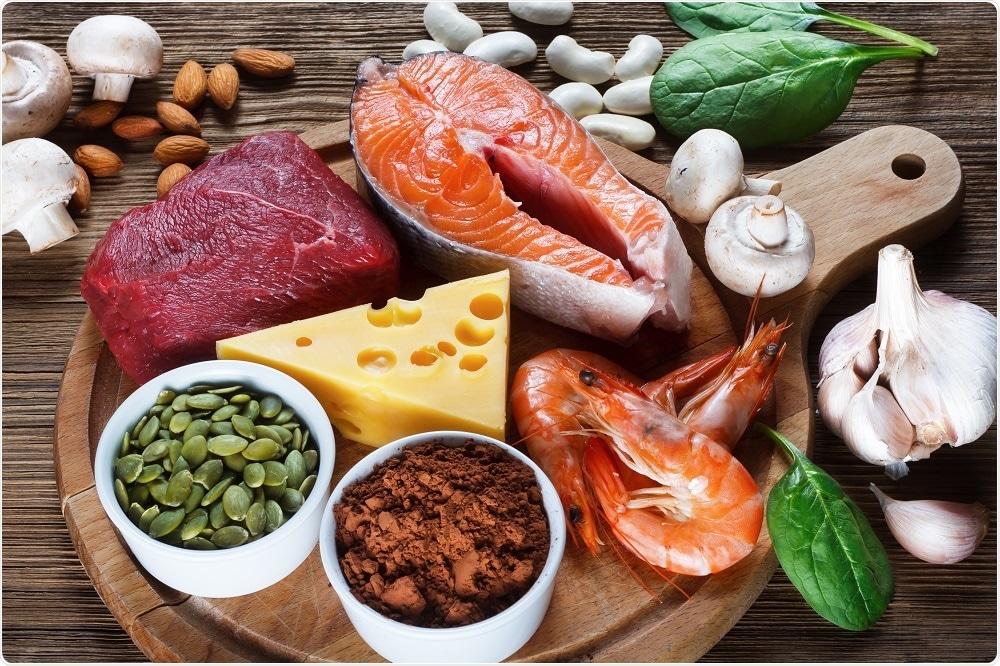Researchers at the University of Texas at Arlington have discovered that zinc targets and blocks a specific calcium channel in esophageal cancer cells, preventing them from proliferating.

© Evan Lorne / Shutterstock.com
Zinc is essential for the body to grow and function correctly. It is typically obtained in a balanced diet from a variety of foods, including red meat, poultry, spinach, beans, nuts, and whole grains. Zinc is an important element in many proteins, including enzymes, and so an absence of zinc can prevent cells from functioning. It is particularly important for normal wound healing and immune response.
Zinc deficiency is common among patients with esophageal cancer, indicating that good levels of zinc may protect against the disease. Previous studies have indeed shown that zinc can protect the esophagus from cancer, but the mechanism through which this was achieved was not clear.
Esophageal cancer is the sixth leading cause of human cancer deaths around the world, with an estimated 16,000 people dying from esophageal cancer in the United States in 2016. The proportion of patients with esophageal cancer who live for 5 years is less than 20 percent.
Zui Pan, an associate professor of nursing at the University of Texas, and her team have discovered that zinc can selectively prevent esophageal cancer cells from dividing and growing. Interestingly, zinc does not affect the growth of healthy esophageal epithelial cells. It is therefore hoped that this effect of zinc could provide the basis for the development of more effective cancer prevention and treatment strategies.
Pan explained "Previously we didn't know why the same physiological concentrations of zinc inhibit cancer cell growth but not normal cells. Our study, for the first time to our knowledge, reveals that zinc impedes overactive calcium signals in cancer cells, which is absent in normal cells, and thus zinc selectively inhibits cancer cell growth."
The team also found that there appears to be signaling pathways that interlink calcium and zinc. Future studies are planned to evaluate the precise nature of the link between these two elements and how they impact each other. Developing such knowledge may help in the development of further improved prevention and treatment options.
Anne Bavier, dean of Nursing and Health Innovation at the University of Texas (UTA), hailed the study as evidence of their commitment to high impact research "It re-affirms UTA's position as a major player in the global battle against cancer...Zui's work on esophageal cancer gets straight to the heart our goal at the College of Nursing and Health Innovation to help solve health problems to build a healthier world."
Source:
University of Texas at Arlington Press release 28 September 2017. Available at https://www.eurekalert.org/pub_releases/2017-09/uota-uss092817.php